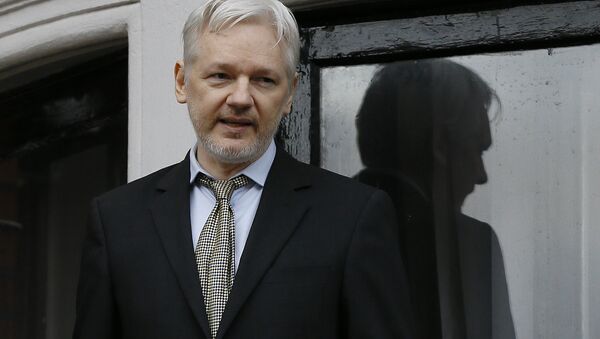Sputnik: Would Assange's extradition to the US remain a plausible concern if the arrest warrant is dropped?
Toby Cadman: Well the warrant itself is only in relation to breaching his bail conditions, as I understand the news coming in, is that he has lost in his application to have that withdrawn. I understand the hearing is still ongoing, but the court has refused to withdraw that warrant. Of course there is always the risk that the US will submit an extradition request. They haven't yet, but that remains unclear.
READ MORE: Assange: Claims UK Court Arrest Warrant Upheld 'Fake News', Hearing Is Underway
Sputnik: Are the pressures against Assange posited as a warning to future whistle blowers?
Toby Cadman: I think Assange's case is very particular, in the way that the case has been dealt with, and with the way that the Swedish case has been dropped, and then seeking asylum with Ecuador.
I think any attempt to silence whistleblowers is obviously going to have a very detrimental effect, and so of course, there is always going to be concern with future whistleblowers coming forward.
Sputnik: Is there any evidence to suggest that the sexual abuse case against Assange was a political stunt?
Toby Cadman: I don't think there's any real basis to say that it was a political stunt. The request for his extradition to Sweden was based on the statement of victims coming forward so i don't think it's fair to say that it was based on any political nature. Of course, his real concern was that it was being used as a way to get him to the United States — I don't think that that's a realistic claim to make, because he's probably more at risk of extradition to the United States from the United Kingdom than he would be from Sweden, because of the different extradition treaties that they have.
READ MORE: 'Brilliant Idea' on Assange, Ecuador and Britain: Is the Matter Headed to ICJ?
Sputnik: What is the main reason that Assange's arrest warrant will not be withdrawn at this time?
Toby Cadman: Well the warrant was issued as it would have been in the case of any person who breeches their bail. If he was arrested on that he would be sentenced up to 12 weeks in prison. That's the case with anyone, and by fleeing the jurisdiction and entering the sanctity of the Ecuadorian embassy, it was in breach of a court order, so I would suggest the main reason why they refused to withdraw that is because he has no justification for having breached his bail, and of course if they were to withdraw it, then that could set a precedent for future individuals where extradition is sought, to the just claim asylum in an embassy. So I would imagine that's the main reason for why they won't withdraw it.
The views and opinions expressed by Toby Cadman are those of the contributors and do not necessarily reflect those of Sputnik.



